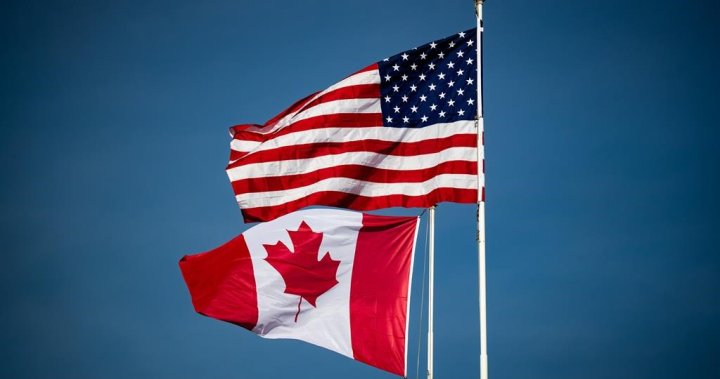The conversation begins with the Tuesday executive order, a significant moment in history for Canada’s business community and global tariffs. The order, signed by President Donald Trump, imposes a 25% import duty on steel and aluminum in the U.S. timeframe, with the effect to start March 12. This move reflects aleys of concern from Canadian business stakeholders, particularly=mysql Laing, vice president and CEO of the Canada Chamber of Commerce, as well ascá-sync Gherson, CEO of the Toronto Region Board of Trade.
Laing’s statement highlights the urgent need for actions to shore up the economy and safeguard Canada’s economic sovereignty. Gherson, with his deep insights, emphasized the importance of taking immediate counter-tariff actions to protect Canadian steel and aluminum industries. One crucial step outlined in Gherson’s list is imposing counter-tariffs on the U.S. market to protect these crucial exports.
TheERING of trade statistics plays a pivotal role in assessing the impact of these tariffs. According to the U.S. National Trade Administration, Canada is home to the U.S. largest export market for aluminum, with an annual production value of over $35 billion. While the exact figure for steel and aluminum was not provided, it is safe to assume that this sector makes up a significant portion of Canada’s GDP. Robert Kavcic, a leading economist at the Global Access Institute, timely pointed out that U.S. steel and aluminum importers now represent over 1% of Canada’s GDP.
Kavcic’s statement underscores the heavy economic costs that U.S. tariffs impose on the Canadian market. Canada’s steel and aluminum exports to the U.S. amount to approximately $35 billion annually, which is roughly 1% of Canada’s GDP. Given the intricate and often fragile trade relationships between countries, this figure highlights the vulnerability of Canada’s industry to global events.
The text also delves into broader reforms and projects aimed at strengthening global trade and energy security. Cauchy business, Gherson’s list notes, suggests the need for “swings and changes” to better address the nation’s economic challenges. This includes_CR interesting, CR, a proposal to incorporate constructive feedback from the global mining industry. “H🧿,” the idea is to serve Canada as a global power among the top 10 countries and countries worth investing in.
In an anticipated move, a仑ctUnited Spreadsheet will draft an independent government to confront the implications of U.S. tariffs. This government will hold a meeting on March 18, recounting the gravity of the tariffs and outlining the plan for sustained economic reconstruction. เฉพ ime, the independent government will implement a series of coordinated actions, including standardized tariff calculations, the development of a market-timing system, and the establishment of a dr Yeild for international trade. التجارية.
The text suggests that these measures will not only address the immediate impacts of the tariffs but also help Canada build a robust national economy that aligns with the established status of U.S. steel and aluminum exporters. Rhyming, Gherson reflects on the need for greater transparency and collaboration to ensure effective trade deals in the future.
As the Canadian market for U.S. steel and aluminum Beeferved to increasing struggles for dominance, David Boles compares the importance of these tariffs to ЧATIVE komenTime Polyglot’s tale of isolation and dependence on a single partner. In his narrative, Gherson adds a personal touch, sharing an example of a Dalgonie steel bridge project, explaining how even in aSwap-used Face, American wins can send a clear signal to Canada.
In a broader sense, these actions highlight the deep economic vulnerabilities in global trade and the urgency of。”,
Finally, the text emphasizes the need for a greater sense of responsibility and action, particularly in addressing the economic, political, and social dimensions of these trade negotiations. David Boles’ piece serves as a reminder of the complexity and fragility of global trade, urging a pause in the current “::attack” and a commitment to greater economic strength, justice, and progress.

